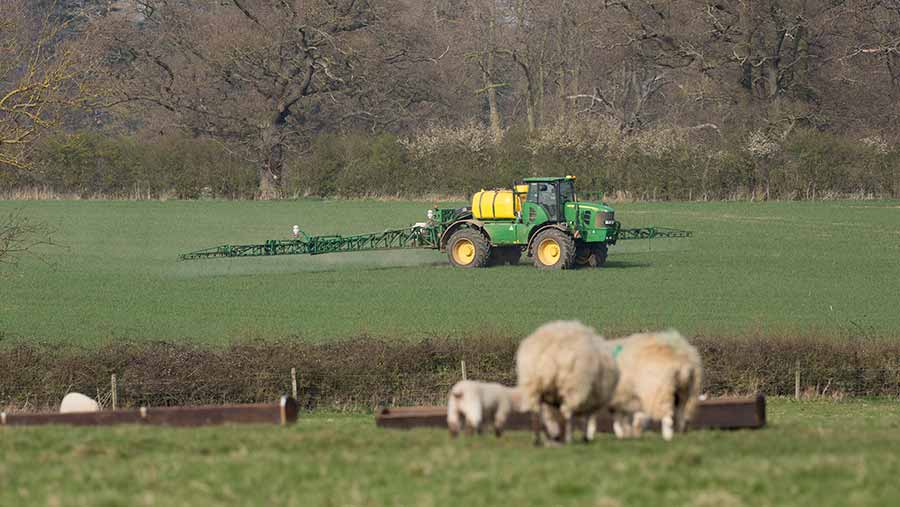Opinion: Unity is only way to ensure ‘health and harmony’ after Brexit
 © Tim Scrivener
© Tim Scrivener Readers who have reviewed my thoughts expressed through these columns over the years may remember I have often called for bodies representing the various sectors of our industry to work together.
I have suggested that, while each may speak for a specialised group of producers, they are likely to have more in common than divide them.
Further, I have pointed out that an industry struggling for profitability can ill afford the repetition inevitable when groups with similar objectives compete with one another.
See also: CLA launches its blueprint for post-Brexit farm support
Even more important is the fact that, when trying to influence politicians, or others, the size and unity of the organisation doing the lobbying really does count. So, while some specialist bodies might get an audience with the Defra secretary occasionally, the NFU, with its broader approach, is the one he talks to all the time.
 David Richardson farms about 400ha of arable land near Norwich in Norfolk
David Richardson farms about 400ha of arable land near Norwich in NorfolkMergers of the various organisations might, I admit, be a step too far. But in my view, close co-operation – much closer than we have seen in the past – is vital.
Well, guess what? A “round table” has recently been established around which sit the most influential farming organisations in the UK.
Chaired by Minette Batters, NFU president, its declared objectives are to “establish and maintain regular, formal and co-operative arrangements to manage policy, legislation and delivery of regulation across the UK”.
Further, “to retain and protect single market access for food, agricultural commodities, live animals and plant products throughout the UK”.
Participants in the round table, set up in response to Brexit, and signatories to its objectives, are: the NFU, NFU Cymru, NFU Scotland, CLA, British Poultry Council, Linking Environment and Farming (Leaf), National Sheep Association, Scottish Land and Estates, Soil Association, Tenant Farmers Association, Ulster Farmers Union, National Pig Association, British Egg Industry Council, RABDF and the National Federation of Young Farmers; 14 organisations that will now speak to government with one voice on agreed farming policies.
There will, of course, be details on which the various members will differ. But as the farming industry faces anything but “health and harmony” from Brexit, this body has established its own “red lines” and has agreed the fundamentals of policies acceptable to all.
These include the demand that farming ministers across the UK must ensure that any policy replacing the CAP must not adversely affect trade within the UK, and that no single country should introduce measures that curtail policy in the rest of the UK.
It was also agreed that the UK’s various governments must take every step to retain and protect single market access for food and commodities throughout the UK. Meanwhile, the government’s short-term commitment to provide the same amount of farm support as is currently paid out under the CAP was welcomed.
There were further agreements on the need to maintain and develop common frameworks across a broad range of policy activity, most of which I would have to concede were non-controversial.
But this was only the start. Once the participants in the round table learn to trust one another, I predict more substantive agreements will emerge.
And, unlikely as it might seem, some good may yet come from the farce that Brexit has become.
